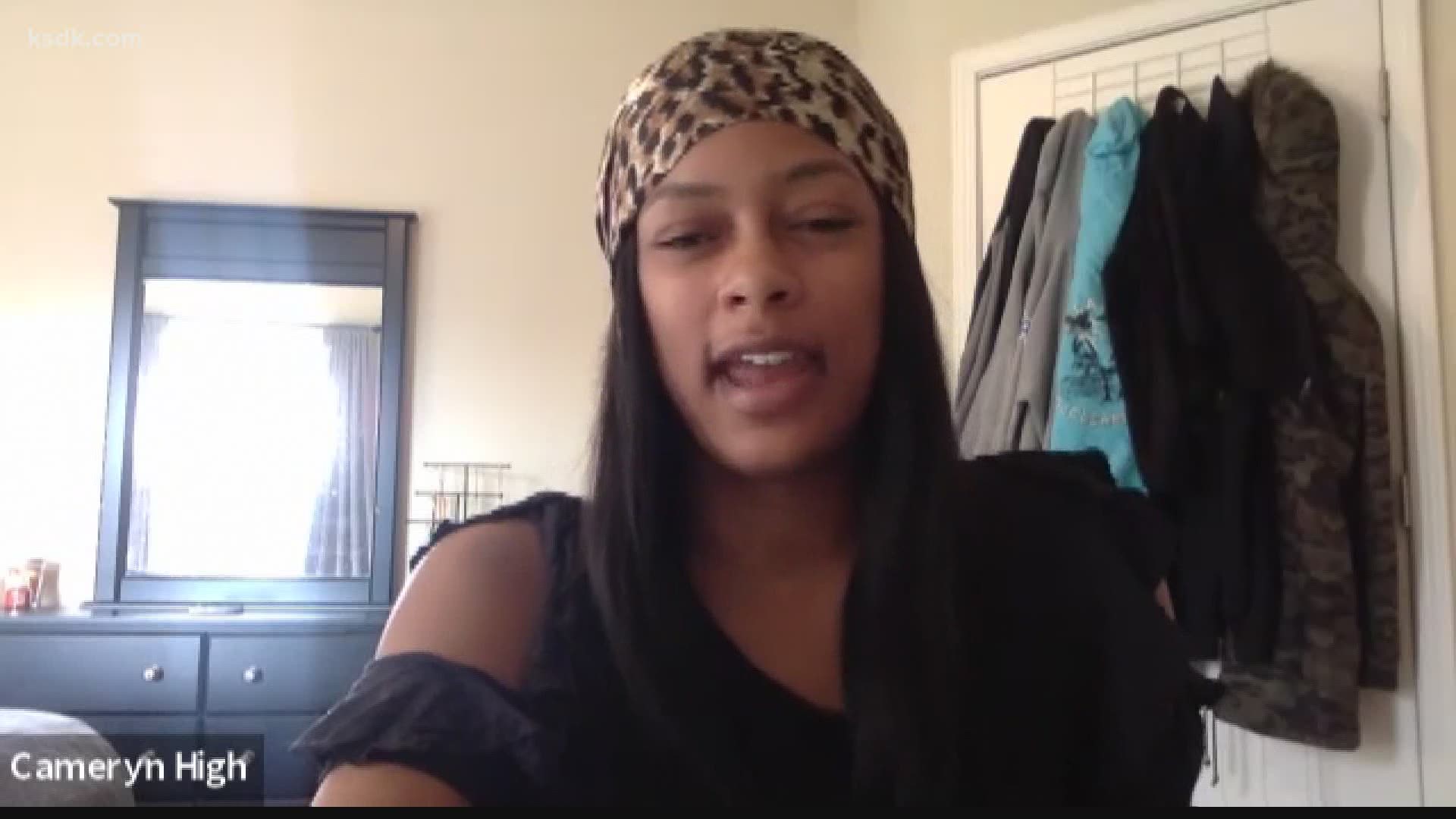COLUMBIA, Mo. — With just a month left before the start of her senior year at the University of Missouri, 21-year-old Sydny Richards faced the looming diagnosis people around the globe have been trying to avoid since early spring.
"I had a really sore throat," Richards said. "I had chills, but I didn't have a fever. I was experiencing pain in my lower abdomen. My stomach was hurting a lot. I was feeling really weak and fatigued."
The St. Louis native said she always took COVID-19 seriously but, in hindsight, feels she could have been more cautious.
"I was staying inside for the most part," Richards said. "Of course, the one time I went out is when I think I probably got it."
Weeks before moving into her Columbia apartment, Richards recovered. However, a clean bill of health is not enough for her to shake what she experienced, especially when it came time to make decisions about how she would attend classes this fall.
Two of her four classes are only being offered online, and she was able to choose whether she wanted to attend class virtually or in-person for the other two.
"I wanted my classes online," Richards said. "I did not want to come into contact with people."
Cameryn High, also a Mizzou senior from St. Louis, said two of her four classes are in-person. She said both classes are small and that that she saw safety precautions in place on the first day.
"They're making sure we don't sit next to each other, and they are making us wear masks," High said. "If you don't wear a mask, I don't think you can go in the classroom."
High said "for the most part", were wearing masks on campus, particularly when inside.
However, even with options for virtual learning and safety precautions in place, both students said they are concerned about COVID-19's presence at the university.
“I still see people posting parties and not social distancing and going places without masks on," Richards said.
On Monday, Mizzou announced 159 active COVID-19 cases while launching an online portal where students can track cases with weekly updates, self-report positive cases- which is required and find resources for contact tracing and self-isolation.
Mizzou also announced Monday that enrollment is up 4% from last fall with a record 90% retention rate for last year's freshmen returning as sophomores.
However, while the university said the active number of cases makes up a mere .5% of its student body, High and Richards said 159 cases is worrisome.
"It's too many," Richards said. "It spreads so fast."
High said she doesn't think it makes sense for Mizzou to allow for in-person learning with more than 100 cases on campus after switching 100% virtual last spring when concerns for the virus were just starting to grow and there weren't any confirmed cases yet.
"I know it’s going to grow," High said. "I know it’s not going to stay at 150 and then, in two or three weeks, be fine again."
As cases in Missouri continue to rise for people between the ages of 18 and 24, High said she doubts in-person classes will still be offered at the end of the school year.
"I don't even think we will make it to Halloween," High said.

